Jeremiah 16:13-15 – “Therefore I will hurl you out of this land into a land that neither you nor your fathers have known, and there you shall serve other gods day and night, for I will show you no favor. Therefore, behold, the days are coming, declares the Lord, when it shall no longer be said, ‘As the Lord lives who brought up the people of Israel out of the land of Egypt,’ but ‘As the Lord lives who brought up the people of Israel out of the north country and out of all the countries where he had driven them.’ For I will bring them back to their own land that I gave to their fathers.” (ESV)
What do we have that the Lord did not give us? The Bible tells is that all good things come from the Lord. And here in Jeremiah we see it again. First, the Lord gave the land to Israel. Then because they had forsaken him he proclaims he will hurl them out of the land he gave them. Then he proclaims he will bring them back again.
I am constantly amazed as I read God’s word to see the totality of his sovereign control over man’s life. We think what we have is because of how hard or smart we work. Or conversely, we’re frustrated with what little we have and berate ourselves for not working smarter or harder.
But is that reality? Are we truly in so much control of our outcome to think it all depends on our efforts alone?
Proverbs 6 tells us that a lazy man will come to nothing but a diligent man will have much. But then Psalms 127 tells us that unless the Lord builds the house they labor in vain who build it. These passages seem to conflict with each other. So does God’s word annul itself, or is there some deeper truth to how both of these are possible?
I think this passage in Jeremiah gives us some insight into how God’s spiritual truths play out in the physical.
Let’s go back to the beginning and see how God operates. God chose Abraham. He gave him a promise and that promise was passed on through Isaac, Jacob, and the twelve tribes of Israel.
Then we see this apparent conflict arise again. Is it man’s efforts or God’s sovereignty that determines man’s outcome?
As Israel was in the wilderness they turned away from the Lord and did not trust him. It culminated when they sent spies into the promised land and ten of the twelve gave a bad report. They believed what they saw with their eyes rather than believing God’s promise. So the nation of Israel turned away from God and he punished them. He let them die in the wilderness rather than going into the promised land, and God gave the blessing he had for them to their children. The children did not forsake Him, and they received the promised blessing.
Then, fast forward hundreds of years, and we’re now at the place where Jeremiah is communicating what God is saying. At this time Israel has forsaken God again. So God is going to hurl them out of the land he had given them, taking away their blessing, and send them into Babylon. But in the next passage he proclaims he will bring them back again.
So in this big picture we see God is controlling everything. He determines their abundance and he determines their lack. He determines their joy and happiness (Jeremiah 33:10-13) and he determines their sadness and mourning (Jeremiah 16:9). We see that God is in complete control, and He blesses or removes his blessing based on how we respond. It’s not based on how we work, but how we respond to him.
So how does this tie into Proverbs that seems to indicate it’s man’s efforts that determines his outcome, that a lazy man gets nothing but a diligent man gets much? It’s a mystery in which we can’t quite connect all the dots. While man has to labor, it’s the Lord who produces the outcome. I love what my pastor said about this dilemma of the connection between man’s labor vs. God’s sovereignty. The illustration he gave is as follows. Imagine a room. On one side of the room is a rope hanging through a hole in the ceiling. On the other side of the room there is another rope hanging through another hole in the ceiling. When you pull on the rope at one end of the room the rope at the other end goes up. We know they are somehow connected but we don’t know exactly how. It’s a mystery. All we know is when you pull on one rope the other rope goes up.
This is what Psalms is talking about. “Unless the Lord builds the house they labor in vain who build it.” It’s a two-fold process. Man has to labor, but ultimately is the Lord who causes the outcome. The next part of the passage in Psalms may be a little clearer: “Unless the Lord guards the city, the watch man keeps awake in vain.” We still have to be diligent to do what we’re supposed to do, but whether the city is guarded or not is ultimately dependent on the Lord — there are many things outside of our control.
And we see that clearly In this passage in Jeremiah. The Lord is in control of all that happens in the macro. What we do in the micro impacts what He chooses to do in the macro. It’s not our individual effort in one minute of time that changes things. But over time it’s our heart and how we respond to God that determines the blessings he chooses to give us. But make no mistake, all we have is because of him. And for that reason we can be content with whatever we have. But if we are discontent in anything, our discontent should be not in the lack of physical things but in the lack of our pursuit of him. Only in that discontentment will we find true contentment as we pursue him more. And as we pursue him more, not only will the things of this world fade and grow dim in the light of his glory and grace, but while they grow dim he frequently blesses us with more. It’s an amazing dichotomy.

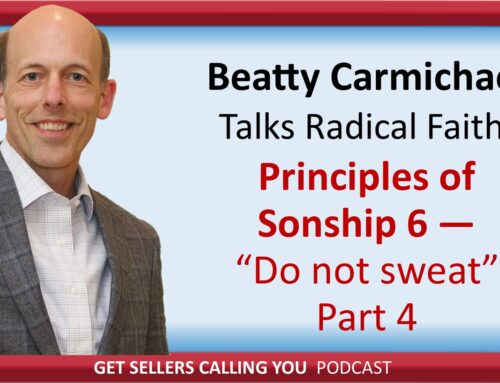
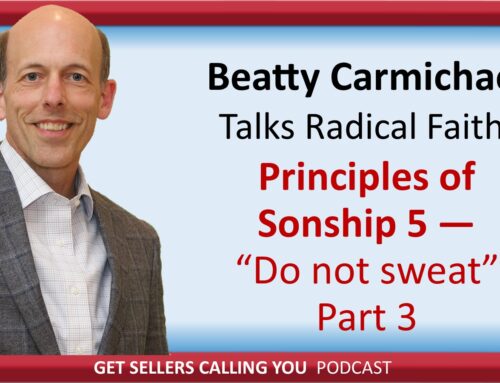
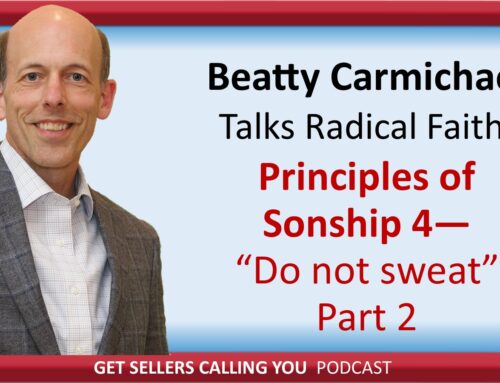
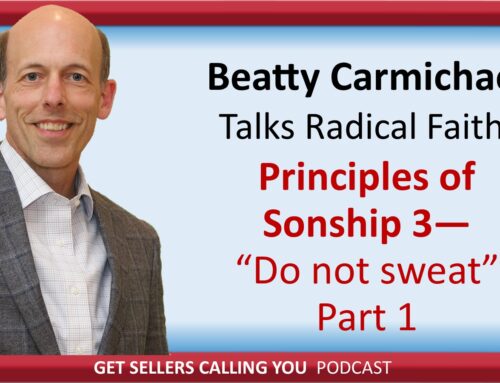
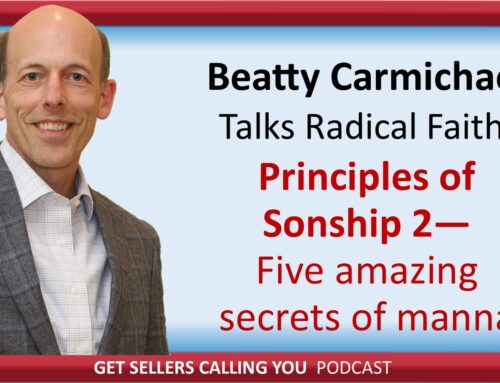

Leave A Comment